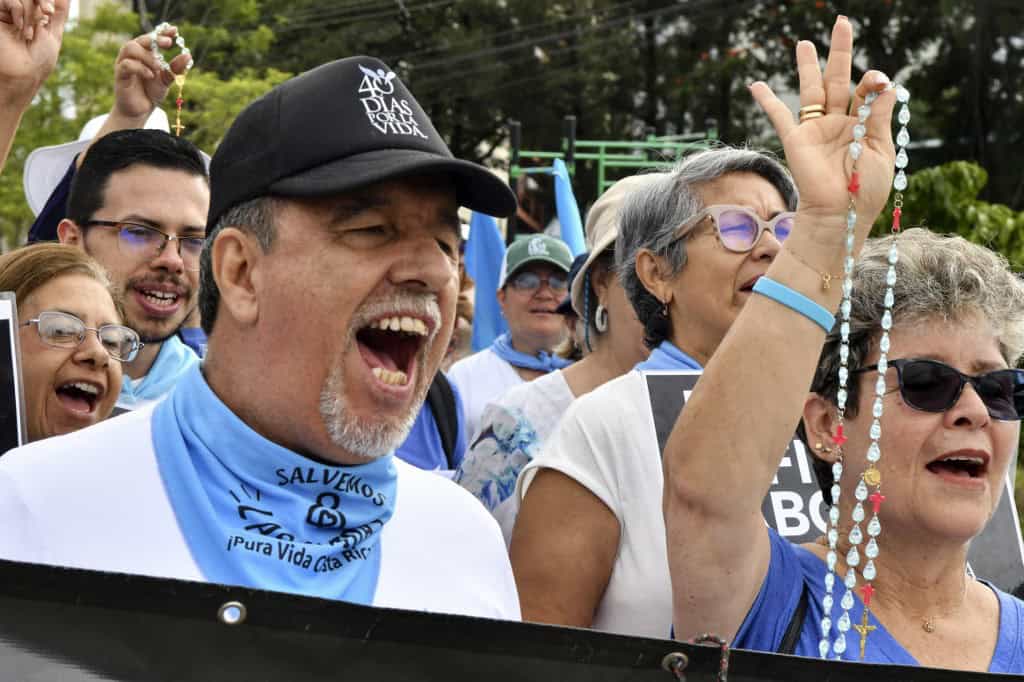Hundreds of Costa Ricans marched this Sunday in opposition to abortion and headed to the Inter-American Court of Human Rights (IACHR), where a case against El Salvador is being heard regarding a woman who was denied the right to terminate her pregnancy despite her life being at risk.
The protesters, mostly dressed in light blue and singing Christian hymns, marched a kilometer from a park to the Court’s headquarters in San José, which has been handling the “Beatriz vs. El Salvador” case since March of last year—the first case it has examined on abortion in Latin America.
“The consequences would be dire if the Inter-American Court ruled in favor of abortion,” said Congressman Fabricio Alvarado of the conservative New Republic party during the protest.
The congressman argued that if the judges ruled against the Salvadoran state, they would be “telling” the countries that recognize the Court that they are “obligated” to take steps to “legalize” abortion. Despite Alvarado’s statement, experts explained in 2023 that a ruling against El Salvador would not necessarily mean that abortion laws would change in that country or in others across Latin America.
“Terminating a pregnancy is murder” and “Aborting for disability is cruelty,” read the signs held by protesters, many of whom were from Catholic groups. Beatriz, whose real name is unknown, was diagnosed in 2013 with systemic lupus erythematosus, an autoimmune disease. She was subsequently denied an abortion despite the risk to her health and the fact that the fetus had anencephaly, a condition in which the brain does not develop during gestation.
Authorities denied her the abortion despite the fetus’s unviability. Eighty-one days later, doctors finally performed a cesarean section, but the baby died five hours after birth. Beatriz died in 2017 in a traffic accident, and last year the IACHR held hearings on the case against El Salvador, a country with some of the most restrictive abortion laws in the world.
Salvadoran courts typically classify abortion as aggravated homicide, resulting in sentences of 30 to 50 years in prison. “We are here […] for those who cannot defend themselves, who are defenseless there in a womb,” added Ronald Pérez, 65, a motorcyclist and member of the group Fighters for Christ, during the protest.
In Latin America, abortion is legal in Argentina, Colombia, Cuba, Uruguay, and some states in Mexico. In Chile, it is illegal except in cases of risk to the mother’s health, rape, or fetal malformation. In El Salvador, Honduras, Nicaragua, Haiti, and the Dominican Republic, it is completely prohibited.






